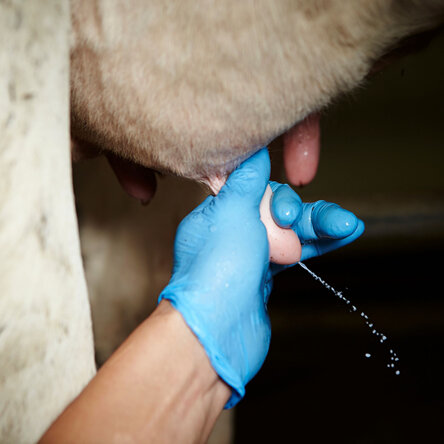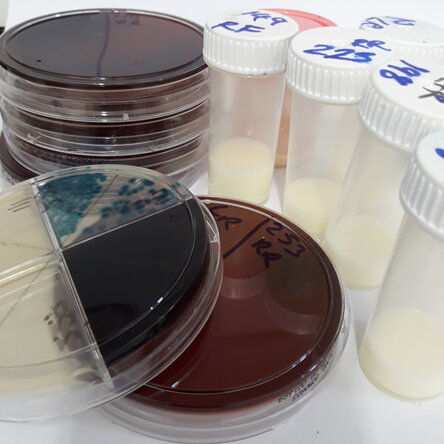Franklin Vets
Franklin Vets - excellence in veterinary care for dairy, farming, lifestyle, equine and household pets. BESTPRACTICE ACCREDITED NZ.

The changing socio-political environment with its increasing emphasis on managing antibiotic resources so we have effective treatments in the future, and using disease status as indicators of animal welfare, provides reasons to improve mastitis control. By reducing the number of cows being affected, we improve animal welfare and reduce the amount of antibiotics being used.
However, aside from these considerations, most farmers cite the hassle of mastitis, having to treat cows, withhold milk, run separate mobs, repeatedly test animals, and the worry of favourite cows being unhealthy, as the things they most dislike about mastitis.
Out and about, we continue to see the “Good Ol’ Bacteria” such as Staphylococcus aureus and Streptococcus uberis causing issues. However, as our farm systems change, we are seeing more cases of Escherichia coli and other gram-negative bacteria causing problems. These bacteria present unique challenges for control and therapy, and it is good to understand what is happening on your farm so you can be aware of how best to control mastitis in your herd.
With all this in mind, we will be focusing on mastitis this season to keep you ahead of the game and going into the next dry period well-prepared.
Dr David Hawkins BSc Farm Vet & Consultant

Completed during the annual food safety consult. Overview of mastitis KPIs, determination of DCT and LCT policy, identification of the need for further investigation.
Farm visit, clinical examination and treatment
Lab tests - Mastatest, Bioscreen and standard culture services. Identification of bacteria involved and the sensitivity to antimicrobials.
Technician collected milk samples to identify the bacteria and sensitivity profiles behind high somatic cell count cows
Protect heifers from early-season environmental mastitis. Use our team to assist with DCT application
Determine the efficacy of Dry Cow Therapy, Teat sealant use in heifers and identify chronically infected cows.
Using the Mastitis Focus Report available in Infovet, the vet provides a more in-depth review of the farm’s mastitis with a focus on new infection rates.
On-farm sessions for up to 8 farm workers focused on farm-level best practice mastitis control: Prevention, detection, treatment, use of screening tools such as RMT, Milking routine and environmental management to reduce mastitis risk.
Analysis of all available data on a farm’s mastitis situation including BMSCC, Herd Test, Clinical Mastitis, New Infection rates, and Bacterial data on file. This can be a prelude to a Milk Quality Consultation. Takes 1-2 hours depending on what information is available in Infovet.
A cut-down version of the full Milk Quality Consultation. Checks teats, plant vacuum, teat-spray and management of the milking mob. Often a prelude to a Milk Quality Consultation. Usually confined to part of a milking rather than the whole milking.
A comprehensive investigation of the underlying causes of mastitis on a farm resulting in a plan to address these. Comprises of a mastitis data analysis, milking visit for the duration of milking including a wet test of the milking machine, milk culturing equivalent to Bioscreen cascade or better, comprehensive written report.